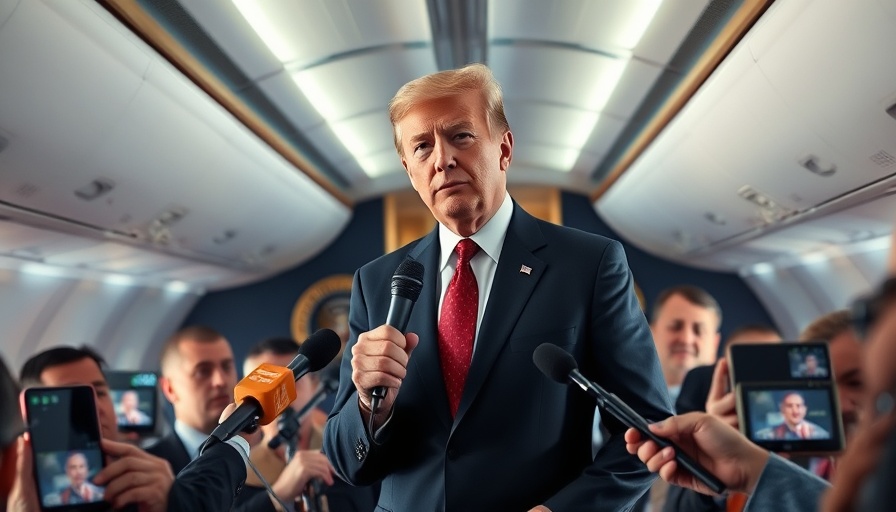
Trump's Ongoing TikTok Decision: A Reprieve with National Security Questions
In a surprising move, President Trump plans to extend TikTok's deadline to separate from its Chinese parent company, ByteDance, amidst rising national security concerns. This marks the third extension this year as Trump signs another executive order to grant TikTok an additional 90 days—pushing the deadline to mid-September, just days away from the initial deadline of Thursday. The White House press secretary, Karoline Leavitt, emphasized the President's desire to avoid a ban on the popular video-sharing app, stating, "As he has said many times, President Trump does not want TikTok to go dark." While this extension might seem favorable for TikTok's U.S. operations, it raises several important questions about the implications for user data security and potential foreign influence.
Understanding the Context of TikTok's Ownership Woes
The history of TikTok's legal tussles in the U.S. has been tumultuous. Initially, President Trump sought to ban the app over fears that it could jeopardize American data privacy and potentially provide China with sensitive information. However, in a development that shocked many, he reversed course last year, highlighting his growing personal fan base on the app as a reason for his softer stance. A clear conflict of interest emerged when ties to significant donors with investments in ByteDance became apparent, illustrating the complexities of political influence in decisions that intersect with national security.
Concerns Rise Among Lawmakers
The repeated extensions granted to TikTok have stirred unease among several lawmakers. They urge the administration to provide clarity on the app's future or push for a definitive ban. As major discussions about trade relations with China continue, the implications of allowing TikTok to remain operational in the U.S. are profound. Senators have expressed concerns that TikTok might contribute to the compromise of sensitive user data, posing a risk if the app’s ownership is not changed. Such fears are not unfounded considering China's strict data security laws, which may compel companies like ByteDance to hand over user data when requested by the government.
The Political Battlefield: Business and National Security
This scenario underscores how business operations and national security considerations are intertwined in today's geopolitical landscape. The potential for TikTok to be a tool of influence is not limited to data security; its substantial user base in the U.S. gives it significant cultural relevance. The app's ability to shape trends, opinions, and information dissemination raises alarms about how similar platforms could sway public sentiment during volatile political climates, especially in an election year.
International Perspectives: A Global Concern
While this debate unfolds in the U.S., it resonates globally. Other nations are monitoring how the Trump administration handles TikTok and similar platforms, as they ponder their own data privacy and security strategies. Countries like India, which previously banned TikTok citing security issues, serve as a case study for how governmental concerns over user data can lead to drastic policy changes in the tech landscape.
The Future of TikTok in America: What Lies Ahead?
Looking forward, TikTok’s future in the U.S. remains uncertain. The ongoing negotiations to establish new ownership will be crucial in determining the platform’s compliance with American law. As the national narrative evolves, TikTok must not only navigate complex legal challenges but also mitigate growing public distrust surrounding data privacy. The administration's stance will likely reflect broader attitudes toward China and its policies moving forward.
Reflections on User Experience and Cultural Impact
For millions of American users, the implications of TikTok's future extend beyond political debates. The app has become a cultural phenomenon, influencing everything from how trends emerge to daily forms of communication among youth. As discussions about ownership and security proceed, users may feel a sense of vertigo—a blend of enthusiasm and anxiety—as they witness their favorite platform caught in the crossfire of international policy, business interests, and issues of trust.
As this situation develops, the critical takeaway for users, lawmakers, and businesses is to remain vigilant about the drastic implications a social media application's ownership can have on individual privacy and broader national interests. Following these updates will be crucial for stakeholders on all fronts, from policymakers scrutinizing security to consumers navigating a changing digital landscape.
 Add Row
Add Row 
 Add
Add 


Write A Comment